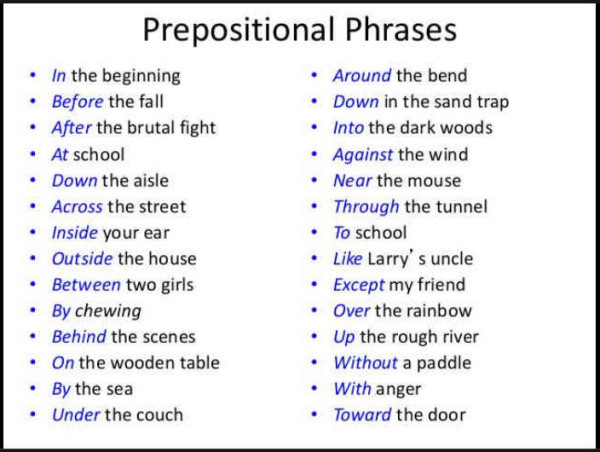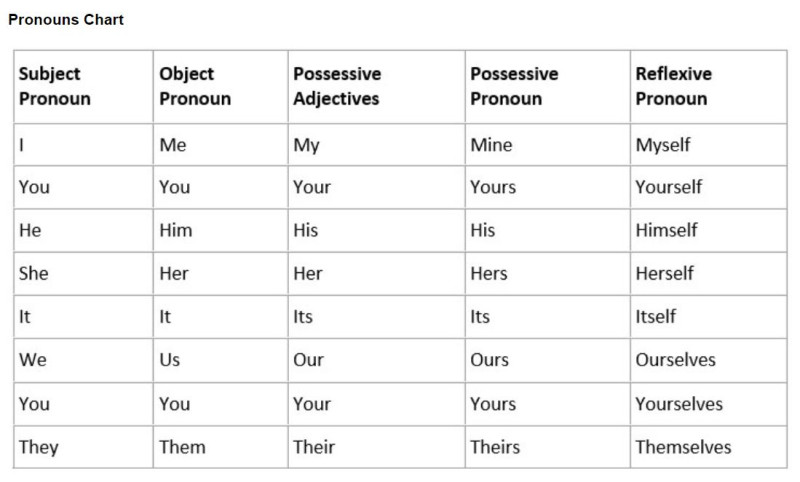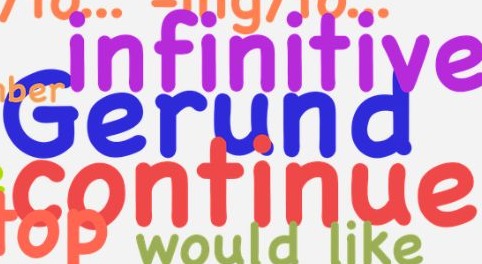Essential grammar for academic success
Build your grammar confidence with easy-to-follow resources on sentence structure, punctuation, parts of speech, and more—designed for academic success.
Prepositions
Prepositions usually go before a noun or pronoun, and can indicate a location, time, direction or to introduce an object.

Articles
Articles usually precede a noun, and can be either definite or indefinite articles.

Verb tenses
Verb tenses such as the past, present and future indicate when an action takes place.

(Source - Will / Going to / Be ING / Present simple - Future - Learn English Grammar - Papa English)
Pronouns
Pronouns are substitutions for nouns or noun phrases.

(Source - Pronouns chart using I, me my, mine & myself correctly - Language Learning Base)
Useful grammar points

Common language errors
Common language errors explained, including punctuation, grammar, and commonly confused words. Lessons contain video and practice activity.
Conditionals
Conditionals: Verb Tense in 'if' Clauses (The Writing Centre UNC)
Explanation of the types of 'if' conditionals
How to Use 'unless' (Education First NZ)
Comparing 'unless' and 'if' conditionals
Conditional Conjunctions (Your Dictionary.com)
A list of conditional words that signal a conditional sentence
English for Uni: Conditionals (Uni of Adelaide)
Explanation of conditionals, types of conditional structures and words, interactive exercises, and a video story
Modals
Modals (The Writing Centre (UNC))
How can modals in academic writing change the meaning of a sentence into a prediction, suggestion, or a question?
Modals in Academic Writing (Uni of York (GB))
Modals play a significant role in academic style. Practise using modals!
Modal Verb Tutorial (English Page.com)
Exercises on modal verbs
Modifiers
Grammar: Modifiers (Walden Uni)
These pages provide explanations and examples of modifiers. Watch the video clip for further explanations!
Dangling Modifiers and How to Correct Them (OWL Purdue Uni)
This resource explains what a dangling modifier is andhow to correct the problem.
Sentence Problems: Misplaced Clauses (Auckland Uni)
Here are two videos that explain misplaced modifying clauses and how to correct them.
Passive and active sentences
Factsheet: Active and Passive Voice (Uni of New Eng)
A comparison of the active and passive sentence and tips to change passive sentences to active
Use the Active Voice (The Writing Centre: Uni of Wisconsin)
Find out how and when to use the active and passive voice.
English for Uni: Passive Voice (Uni of Adelaide)
View the video, then try the passive voice exercises to test your knowledge.
Noun-pronoun agreement
Grammar: Noun-Pronoun Agreement Basics (Walden Uni)
Clear and simple explanation on noun-pronoun agreement
Pronoun-Antecedent Agreement Exercise (Towson Uni)
The activities here will help you understand pronoun-antecedent agreement.